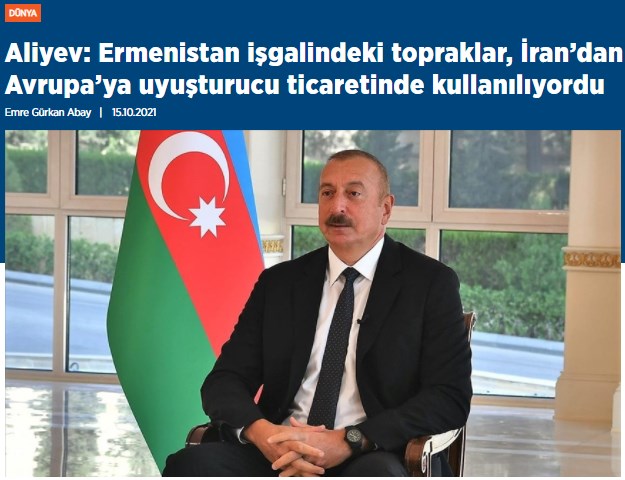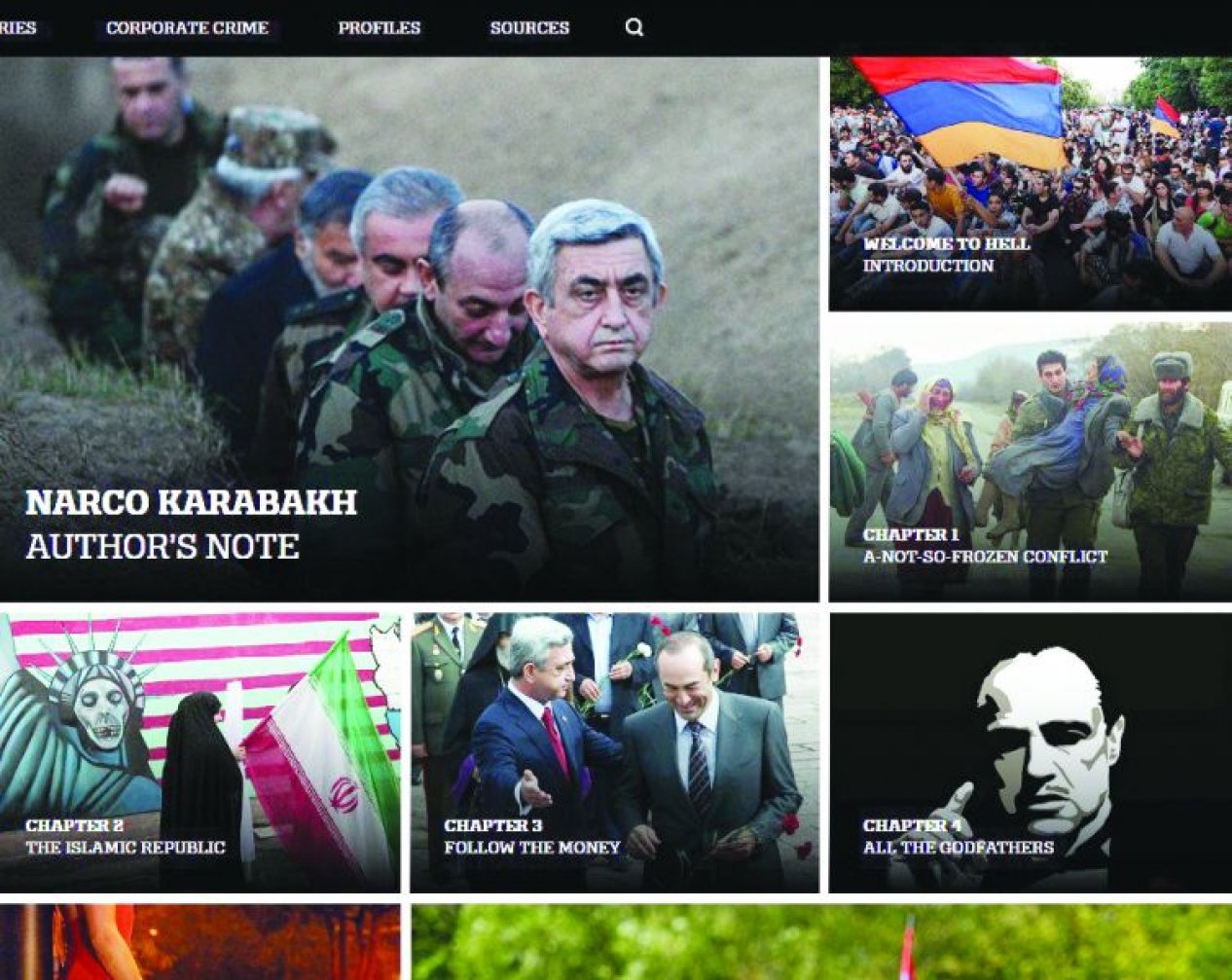
It hasn’t been a secret for years that illegal drugs were being produced in the Karabakh region, which Azerbaijan liberated from the Armenian occupation after 28 years, and that Armenia has always acted with Iran in this matter. Although Azerbaijan has brought this issue to the agenda many times in the international community, no serious measures have been taken to solve the problem and we have witnessed double standards as always. The fact that the problem has not yet been resolved is the result of this indifference and political hypocrisy.
International organizations also know that Azerbaijan, which liberated its lands from the Armenian occupation about a year ago, had its territories turned into a breeding ground for drugs and smuggling. One of the world’s main international drug trafficking routes passed through the territory of Azerbaijan, which for many years had been under Armenian control: from the point of view of international law, Azerbaijan could not be responsible for what is happening in the territory now liberated from occupation, nor for drug trafficking and other transnational crimes. That’s because these lands were under the occupation of the Armenian armed forces for 28 years. The Armenian state, which turned a blind eye to all calls and recommendations of international organizations, continued its illegal actions for years by acting against the norms and principles of international law. Armenia ignored all international norms and didn’t give up the occupation for years. One of the main reasons for this was that the economically struggling Armenia used the occupied territories as a transit point for international drug trafficking and earned financial income from it.
Since the occupied Azerbaijani territories for many years were known as an uncontrolled zone in terms of international law, these areas had favorable conditions not only for drug trafficking, but also for other acts of international danger - training and transit of terrorists, drug production, transfer of dangerous substances and other purposes. The use of this area by the Armenian authorities as a transit point for drug trafficking has already been confirmed by a number of international organizations.
For example, in the territory liberated by the Azerbaijani army in the Fuzuli district, a large area for drug production and a production laboratory were found. As a matter of fact, this proves that the international community should not ignore some important points. There has been sufficient information about the transport of drugs from the South and East routes to the West and North through the lands on the Iranian border in the Karabakh region, and Baku was always talking about these issues. However, this laboratory phenomenon proves that Armenia does not only use the uncontrolled lands as a transit point for drugs, but also that artificial drug production is made there.
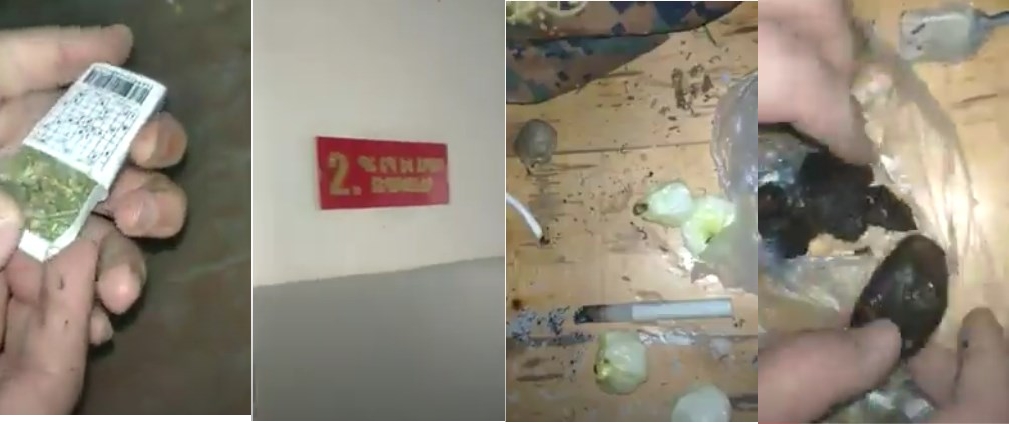
Presumably, the production of drugs there was not just for sale. Most likely, members of the rebel gangs that had gathered on the uncontrolled territory for years were also drawn into the drug swirl. In other words, there were promises to create a “drug haven” that would bring terrorist troops from different ethnic groups and radical ideologies to Karabakh, not just money. If we look at the historical tradition, we will see that the tradition of continuing terrorism and drugs production belongs to Armenia and Iran.
Faktyoxla Lab. has tried to research how the drug trafficking, which has been carried out by the two states for years in Azerbaijan’s liberated lands, resonated in the world.
In April last year, an article by Stephen Blank talking about Iran being a serious threat to the South Caucasus region was published in War On The Rocks, the US world-famous analysis blog on national and international issues.
In the article, it was emphasized that Iran’s cooperation with the other three countries on energy shipments with the so-called government in Karabakh has been going on for some time, and it was pointed out that the Armenian government is likely to support this cooperation as part of its wider relationship with Iran.
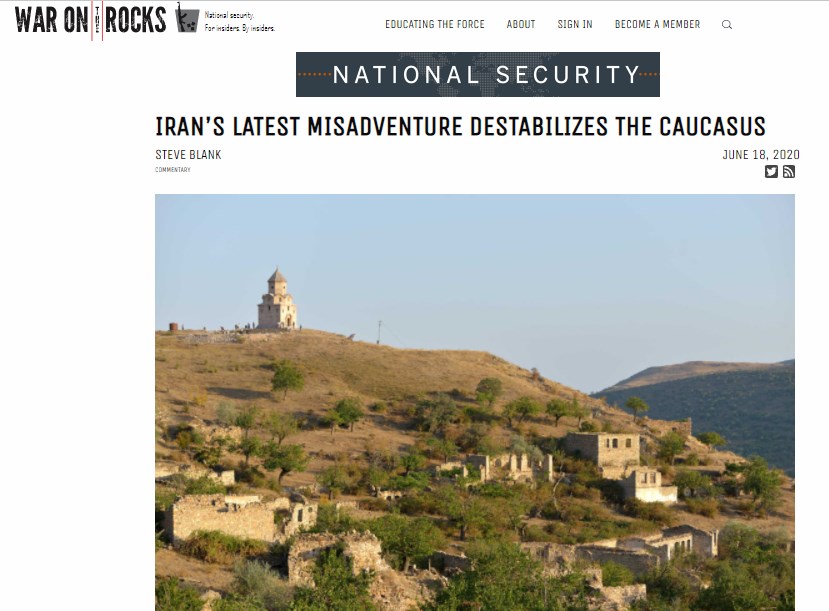
“It’s likely that Iran’s cooperation with the government in Nagorno-Karabakh on energy shipments has been going on for some time, and that Armenia’s government has supported this cooperation as part of its larger relationship with Iran. That would implicate Yerevan - Armenia’s capital - in this break with international norms. Such cooperation also opens the door to Iranian transshipments of weapons and drugs to and through Karabakh that would also contravene international law. This would represent a major escalation, and constitute a serious threat to Azerbaijan. Since Iran shows a willingness to jeopardize its relations with Azerbaijan - and given its weapons and missile proliferation to its clients like the Houthi in Yemen - it’s plausible that Tehran might ship weapons to allies in Nagorno-Karabakh,” Blank wrote.
Stephen Blank, who was earlier working as a professor at the US Army War College Institute for Strategic Studies at Carlisle Barracks, and now a Senior Fellow at the Foreign Policy Research Institute, prepared a report for Silk Road Studies.
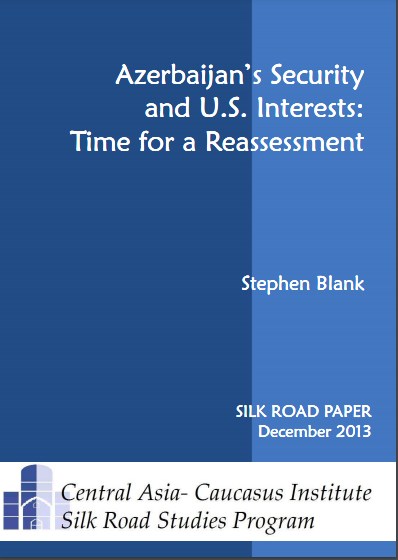
In the report titled “Azerbaijan’s Security and US Interests: Time for a Reassessment,” Blank made the following assessments on the subject: “Clearly Iran has been waging a low-level but unremitting and long-running campaign of subversion, terrorism, and threats against Azerbaijan, fearing that it may be used as a base by Israel or the US. And on many occasions, Azerbaijan has received Iranian threats that it would be attacked if it granted the US or Israel a base there. Thus, Elhan Shahinoglu, head of the Atlas Center for Political Research, said at a round table in Baku that, “Tehran does not limit itself with anti-Azerbaijan propaganda and enhanced military presence near Azerbaijan’s border. Presently they are holding military trainings there, drug traffic from Iran’s territory to Azerbaijan is not ceasing.”
Harrold Cane, a UK writer, has published a book detailing shocking revelations about illegal activities in Nagorno-Karabakh. Researcher and author Harrold Cane, in his book titled Narco Karabakh shed light on a series of crimes whose effects extend far beyond the Caucasus region and have profound effects on the international community. He spent weeks in the Caucasus, including visiting Armenia and Nagorno-Karabakh as a tourist, and stated that during this time he encountered industrial-scale human trafficking, drug trafficking, illegal arms trade and natural resource theft.
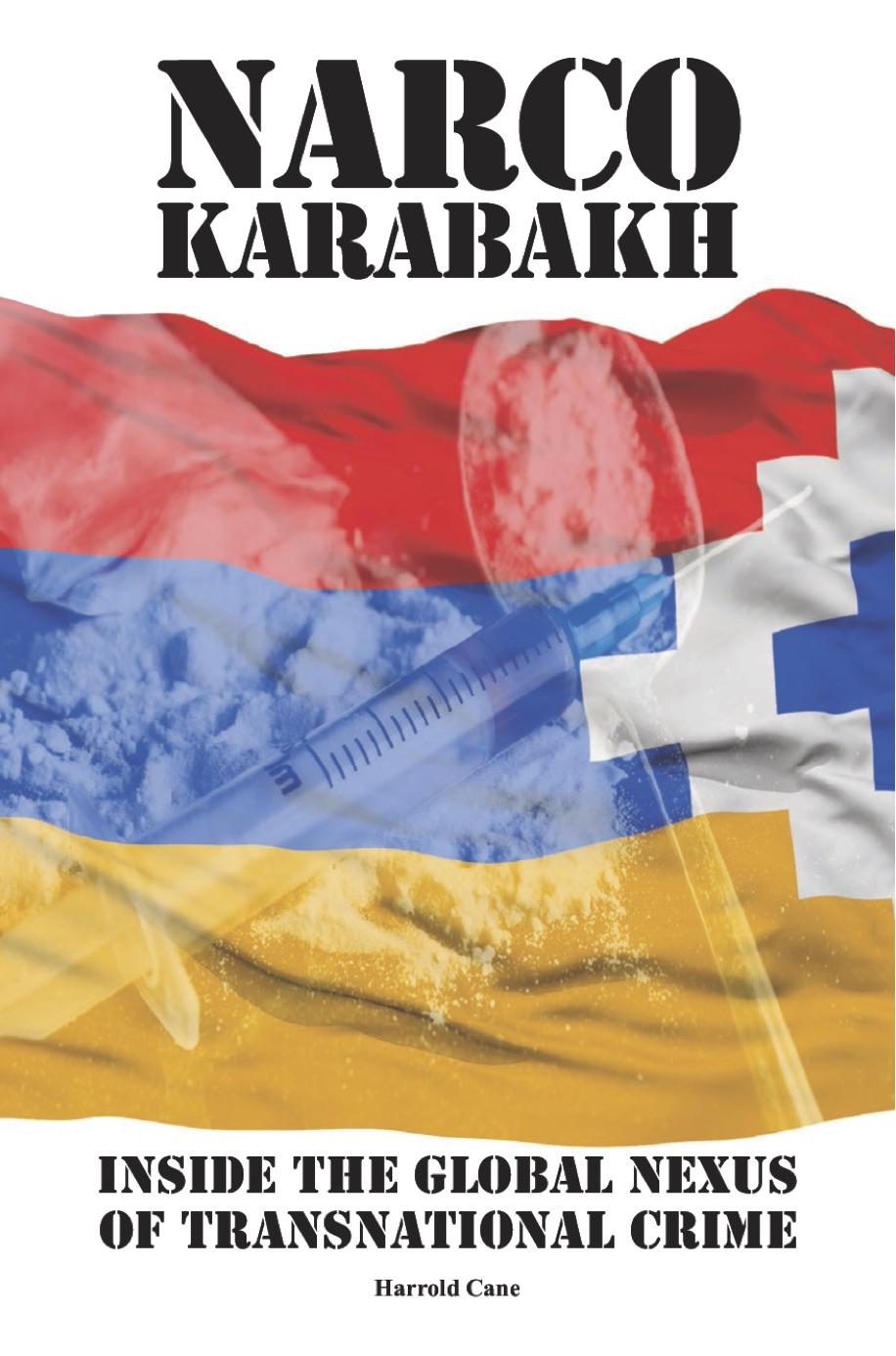
Due to its current situation, Nagorno-Karabakh is in a vacuum. This fact has been brutally exploited and allowed the area to be used as a clearinghouse for international organized crime, says the author, who used a nickname due to security concerns, revealing that the book has attracted the attention of actors such as the Armenian Mafia.
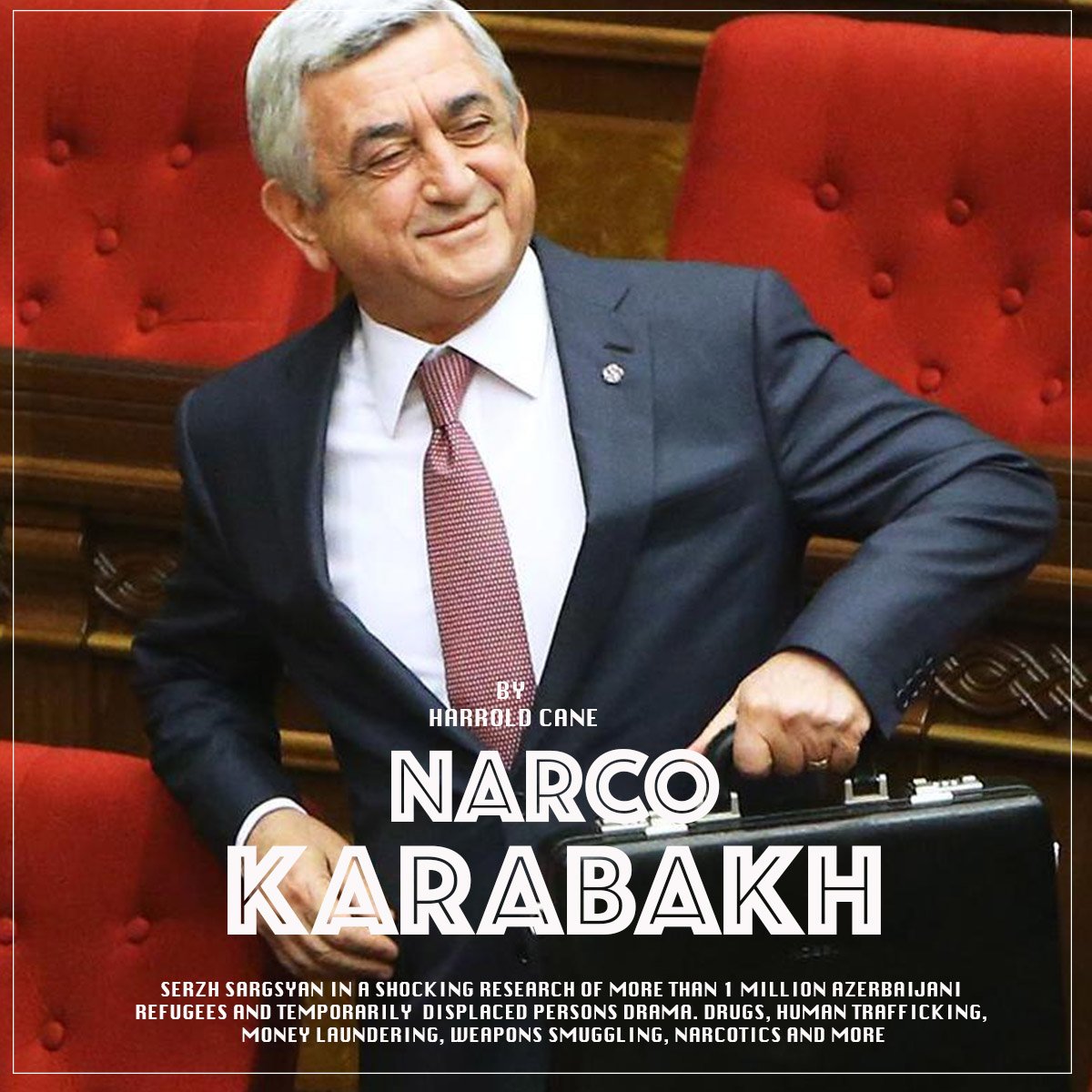
In fact, as the book was being written, Iranian Revolutionary Guards, Afghan drug lords, and some of the world’s foremost illegal arms and drug dealers even visited Cane’s hotel in Yerevan, where he was beaten by law enforcement in Khankendi. (Source)
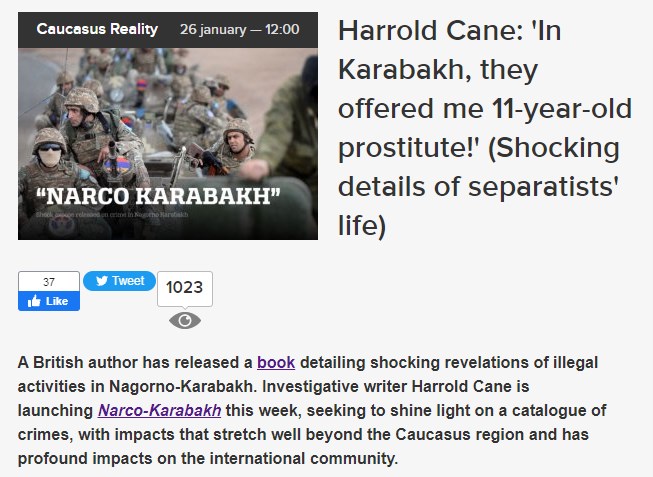
Obviously, the criminal organizations in Armenia and Karabakh, which was occupied at that time, didn’t want the situation in question to be documented.
Nurit Greenger, columnist of Israel Hayom, one of Israel’s famous media outlets, wrote an article titled “When the cat’s away, the mice will play,” revealing that the nefarious activity between Iran and Armenia is not just about drug smuggling.
“Araz News, an independent news source focusing on ethnic Azerbaijanis, reports that drug trafficking is not the only nefarious activity occurring at the crossing; the IRGC is sending supplies, such as fuel, food, and construction materials, to Armenia-held Karabakh. According to my sources, the Iranian trucks coming from north-west Iran, enter the Armenian-held Karabakh region, using at least two different points of entry routes, as seen in satellite images,” she wrote.
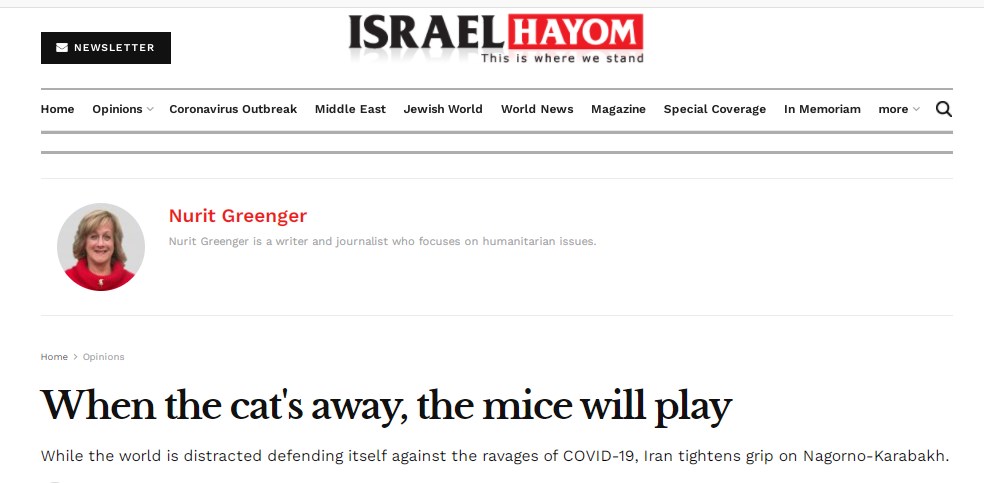
“One route starts in Tabriz-to Meghri, a southern Armenian town that borders Iran via the Goris-Lachin highway to Nagorno-Karabakh's capital, Stepanakert (Khankendi). The second route starts in Iran's Ardabil province's north-east Khomarly, leading to Azerbaijan's Jabrayil district which crosses a portion of Armenian-controlled territory since the early 1990s, the Iran-Azerbaijan's border. On the Iranian side, both crossing points are connected to Iran's M12 Highway,” the author added.
“The Armenian got control over 132 km of Azerbaijan’s border, which stretches between the Armenian town of Meghri and the Azerbaijani town of Horadiz, is Tehran’s contact point with the ‘Republic of Artsakh’,” reads the article.
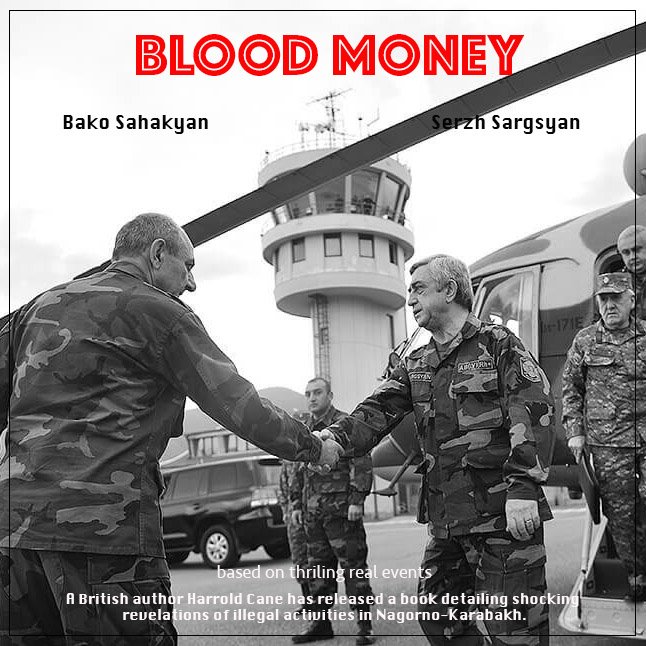
“While Iran claims to be a pious and ordered nation, it is pouring hard drugs, weapons, and fuel across this border crossing. This phenomenon is illustrated in Harrold Cane's well-penned article: The Islamic Republic.
Iranian smugglers drive trucks with Iranian license plates – mostly belonging to the Nasr Novin Mishu Company, a Nasr Company subsidiary located in Iran's northwestern cities of Sufian and Tabriz – operating under the auspices of IRGC in the northwestern part of Iran. The smugglers openly carry narcotics across the Araz River, into the Nagorno-Karabakh region-into Europe’s back passage,” the article said.
As a result, these articles prove once again the words of Azerbaijani President Ilham Aliyev, who attended the summit of the leaders of the Commonwealth of Independent States (CIS) countries, and who made statements on the Karabakh issue via a video conference.
